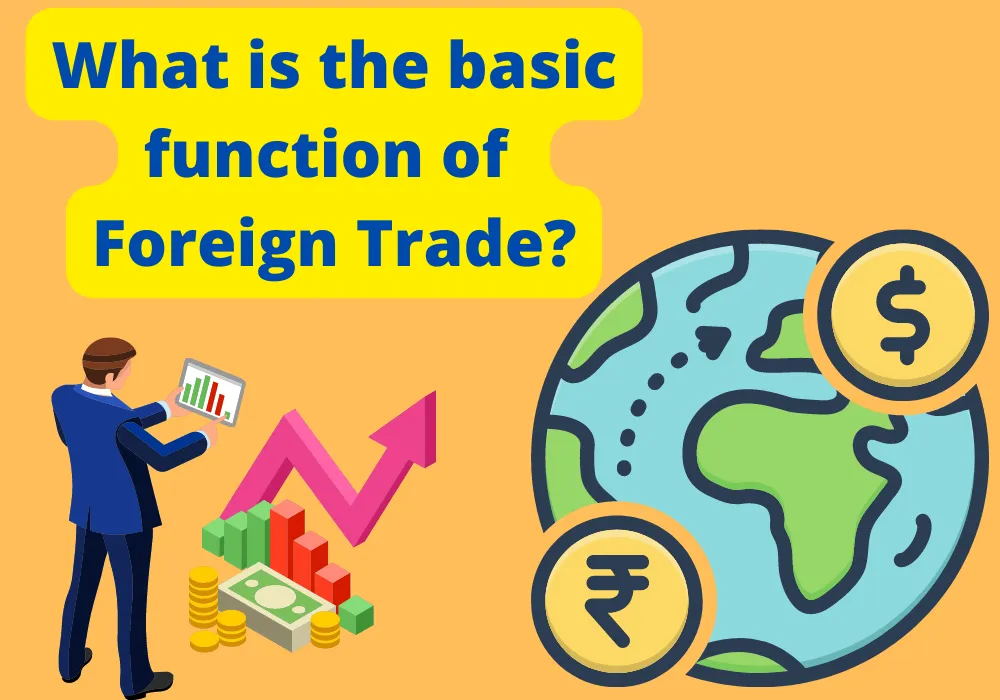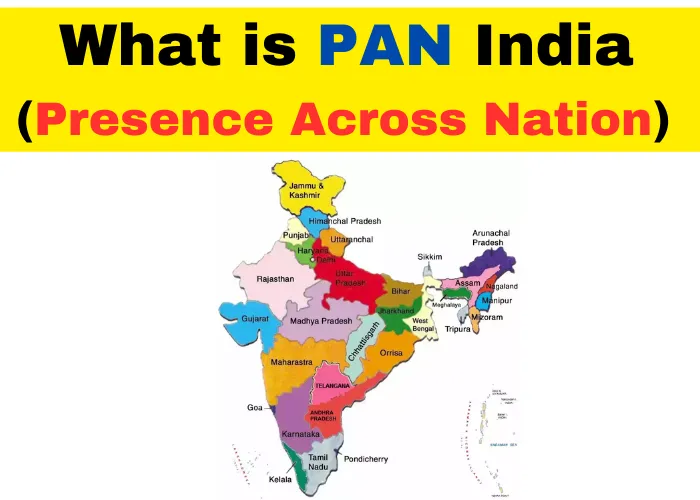Contents

Foreign trade is the exchange of goods and services between countries. It is a major economic activity which ranges from barter to complicated international trade agreements. The world’s economy would not exist without foreign trade. In today’s globalized world, it is necessary for countries to pursue free trade agreements in order to secure their economic futures. This blog will explore the basic functions and current state of the global economy.
Foreign trade helps to provide its citizens with imports, exports, and wages. It is a key means for commercial and international exchanges.
What is Foreign Trade?
Foreign trade is the exchange of goods or services of one country for those of another country. It can be in the form of imports or exports on a trade basis, or on a monetary basis. Exports are products produced in one country and sent to a buyer in another country, and imports are products from another country that are sent to the buyer of the first country. The primary focus of foreign trade is to reduce the country’s trade deficit or to increase its trade surplus.
Basic Function of foreign trade:
- Foreign trade creates an chance for the produces to reach beyond the domestic markets.
- Manufactures can sell their produce not only in markets located within the country but can also take part in markets situated in other countries of the world.
- For the purchaser, import of goods fabricated in another country is one way of expanding the choice of goods afar what is domestically produced.
- It has guide to greater degree of vocation and large-scale production.
- Foreign trade supply foreign swapping which can be used to remove poverty and other productive objective.
- Transformation function, i.e. the effect of foreign trade on forming the internal economic balance level.
- Growth function, i.e. fulfilling the viewpoint of the “economy of time“ with the result of saving national labor by taking part in the international division of labor.
- Mutual interaction between the growth (or decline) of national earnings and the growth (decline) of market overseas.

Types of Foreign Trade:
- Import Trade
- Export Trade
- Entrepot Trade (Re Exportation)
1. Import trade
Imports lead to an discharge of funds from the country since import transactions require payments to sellers residing in another country.
2. Export trade
Exports are goods and services that are fabricated nation-wide, but then sold to customers residing in other countries.
3. Entrepot Trade (Re Exportation)
The term entrepot, also called a transit port and historically mention to as a port city, is a trading post, port, city, or warehouse where stock may be imported, stored, or traded before re-export, with no additional computing taking place and with no customs duties imposed.
- Foreign trade helps the countries to specialize in the production of those goods in which they have special advantages such as natural resources, capital, manpower, technology etc.
- It can supplement the shortages of resources or essential materials.
- It is through foreign trade that the markets for products have been expanded to cover the entire world.
- It has lead to greater degree of specialization and large-scale production.
- The movement of goods internationally involves the cost of transporting them across national boundaries. Apart from paying for freight the other costs are insurance, handling, storage etc.
- Which in turn influences the price and volumes of the goods that are internationally traded.
- Tariffs, an instrument of commercial policy tend to raise the prices of imported goods by making them more expensive.
- This in turn discourages the domestic consumers to buy foreign goods.
India’s Composition of foreign trade
1. Decrease in percentage share of farming exports.
- India started using its farm products as raw material for its domestic industry.
- A substantial rise in India’s population has raised the domestic consumption of farm products.
2. Decrease in percentage share of normal items: jute, tea, food-grains.
3. Increase in percentage share of manufactured goods: Gems and jewelling is India’s highest exporting category of goods.
Roles of foreign trade
Role of foreign trade to economic development are in numbers of ways:
- Foreign trade explores means of procuring imports of capital goods, without which no process of development can start.
- It provides for free flow of technology, which allows for increases in total factor productivity, and some short run multiplier effects for countries with unemployed labor.
- Foreign trade generates pressure for dynamic change through (a) competitive pressure from imports, (b) pressure of competing for export markets and (c) a better allocation of resources.
- Exports allow fuller utilization of capacity, increased exploitation of economies of scale, separation of production patterns from domestic demand, and increasing familiarity with absorption of new technologies.
- Foreign trade increases domestic workers’ welfare. It does so at the minimum in three ways:
- Larger market overseas translate into higher wages.
- Since workers are also purchaser, trade brings them instant gains through cheaper imports.
- Foreign trade authorize most workers to become more fertile as the goods they produce increase in value.
Finally, increased openness to trade has been strongly related with the depletion of poverty in most developing countries.
Final Words
The basic function of foreign trade is to exchange goods and services between countries. This is done through trade agreements and the opening of borders. In order to trade goods and services, there has to be a certain level of trust between countries. This trust is shown through the establishment of rules and regulations. Rules and regulations are the basis of free trade. Free trade is not an act of charity. It is a collective effort to make the world a better place.
We hope you enjoyed our blog about what is the basic function of foreign trade. There are many complicated topics that can be difficult to understand, but we hope that our article on what is the basic function of foreign trade helped clear some things up for you. If you have any questions, please don’t hesitate to reach out to us at EduKar. We would love to hear from you!



![Corporate Accounting [Important Questions & Answers with MCQ] Corporate Accounting Important Questions & Answers](https://edukar.in/wp-content/uploads/2022/09/Corporate-Accounting-Important-Questions-Answers-1024x597.webp)
![Zoology Important Questions [Class 11th-English medium] Zoology Important Questions class 10 english medium](https://edukar.in/wp-content/uploads/2022/09/Zoology-Important-Questions-class-10-english-medium-1024x597.webp)

![Biology Class 10 Very important [Questions &Answers] Biology Important Questions with Answers class 10](https://edukar.in/wp-content/uploads/2022/09/Biology-Important-Questions-with-Answers-class-10-1024x597.webp)

![Web application and Security Class 10 [Questions Answers & MCQs] Web application Class 10 Questions & Answers](https://edukar.in/wp-content/uploads/2022/09/Web-application-Class-10-Questions-Answers-1024x597.webp)






![Digital Documentation Class 9 [Questions Answers & MCQ] Digital Documentation Class 9](https://edukar.in/wp-content/uploads/2022/08/Digital-Documentation-Class-9-1024x597.webp)
